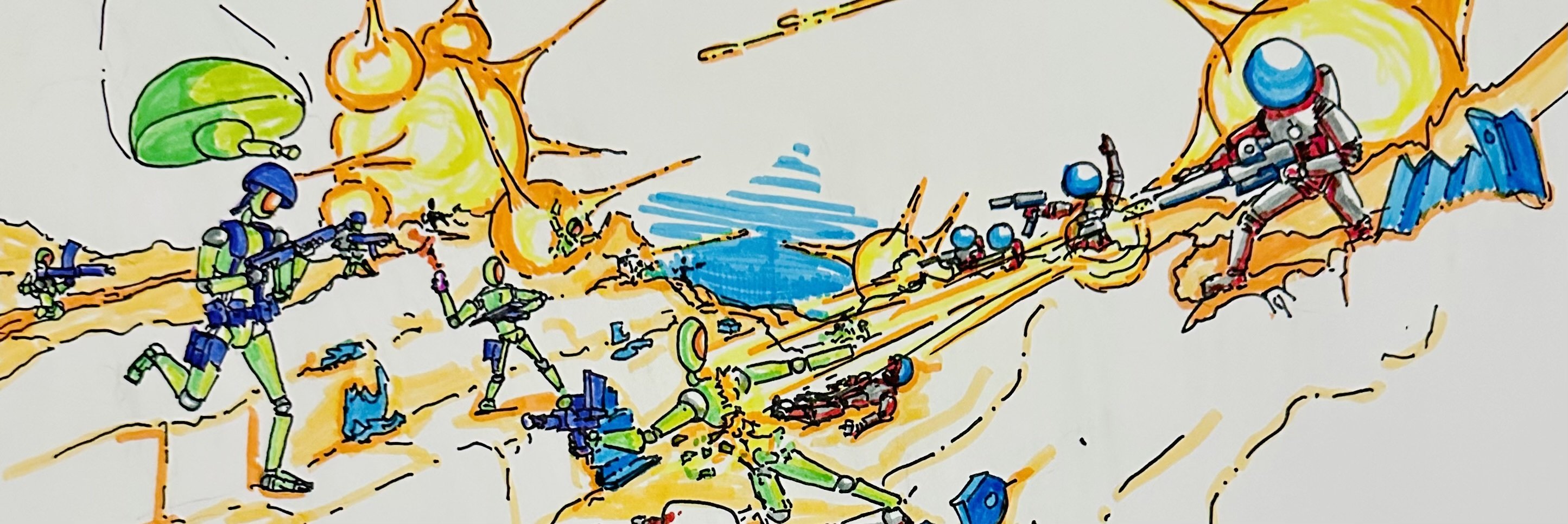I mod a worryingly growing list of communities. Ask away if you have any questions or issues with any of the communities.
I also run the hobby and nerd interest website scratch-that.org.
- 5 Posts
- 7 Comments

 211·4 days ago
211·4 days agoThe MCC Halo had a graphical remaster on the original engine, that’s why you could swap between original and remaster visuals on the fly. The upcoming project is a remake on a new engine with changes to gameplay and design.

 3·8 days ago
3·8 days agoI think every study like this should be looked at and considered as a work in progress and as information that doesn’t exist in a vacuum. Also, quotes like “This matches some anthropological estimates for early modern humans.” might be ones to consider, as other sources do agree that a lifespan in the 30s was at one point to be expected, but it began extending past that 30, 000 years ago. So when the original study talks about 30 as the upper end, is it looking at an age where an early hunter-gatherer type human would be unable to keep sustaining themselves with that lifestyle? Is it because they are no longer fit enough to keep hunting or is it because even if somebody else fed them that all the other circumstances would just pile on? Is the idea of DNA estimating lifespan also looking at the idea that once an organism ages to a certain point and slows down it statistically dies from predation as well? Since that is something humans as a whole have been able to get past with intelligence. I don’t know exactly how that all interacts, which is why looking at a lot of data is important before declaring something.
Which also brings up the idea of an average in relation to an expected lifespan. It is a commonly known tidbit that while the average lifespan in ancient and medieval times would usually be estimated somewhere in the 30s (depending on the exact era, location, and methodology), that’s an average dragged way down by infant mortality, and that people who made it out of childhood would have higher expected lifespans. I bring this up because looking at the OP linked study and then skimming a look at average lifespans might make the idea of DNA-destined-dead-by-30 a lock, when it really isn’t.
Obvious advancing medicine increases the population average lifespan. A human 30,000 years ago born with diabetes probably wouldn’t make it very long while one born these days with proper medication lives much longer. Does seeing the population average lifespan number go up have any relation to another individual, specific human who doesn’t have any sort of chronic illness? No, so again just looking at raw population averages as just one way of looking at expected lifespan is something to keep in mind.
The conclusion is that it’s an interesting study to keep as a link, and use as one piece of data if you’re really interested in gathering more information.

 21·9 days ago
21·9 days agoIt is tedious, with repeated samey layout and a limited selection of flood enemy types. The mod mixes up the environment and adds more flood enemy types for variety.

 1·9 days ago
1·9 days agoIn videos he has mentioned both reducing the damage from the sniper rifles so they aren’t one-hit kills, and allowing jackels to use carbines which will replace some sniper jackels.

 101·10 days ago
101·10 days agoYes, it was in the CE PC multiplayer. And, to refer back to the post:
It adds new weapons to the CE campaign

 0·1 year ago
0·1 year agoObnoxious late 90s-early 2000s over the top stuff like Limp Bizkit. I don’t know what happened. I always hated it until last year and then it just clicked. Please stay back.




I think the original trilogy (plus Reach and ODST) work because while there’s a ton of lore, the really convoluted stuff is kind of at the background to the moment to moment feel of the game. The most forward facing content is a pastiche of other easily digestible scifi that’s all mixed together in a fun, interesting way. You’ve got conventional humans who feel like a straight expansion of the colonial marines from Aliens up against a diverse and interesting array of aliens. The Covenant are a refinement from Pathways Into Darkness and then the Marathon games. You’ve got the flood as a space zombie change of pace.
It all mixes together well and the more detailed lore can be built on top of it. There are many intentional gaps and hooks which can suggest things without having to be addressed explicitly, leaving room for some mystery.
After those games, the series kind of imploded under the weight of its own lore since the developers/writers chose to bring all of those mysterious elements to the forefront. It gave less interesting enemies to fight, and less motivation to care. I doubt many people have moments from those games burned into their memories the same way moments from the original trilogy are.